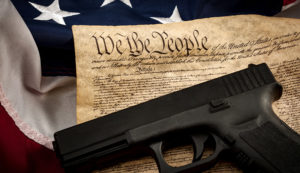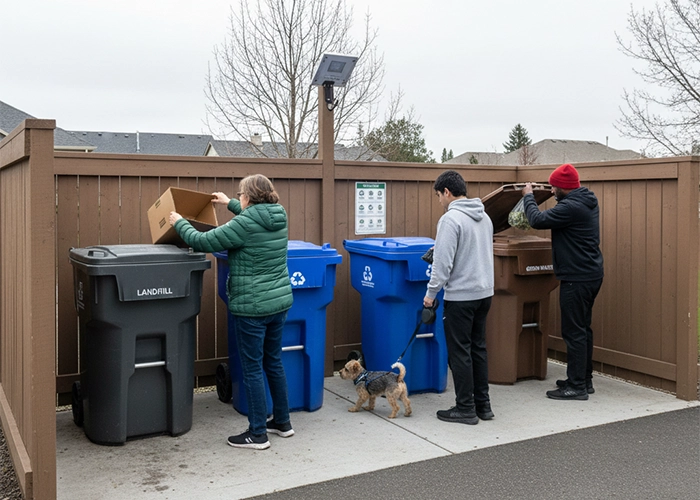Unenforceable HOA Rules: What Homeowners Should Know

Homeowners association rules are not perfect; after all, it is man-made. While you may want to think that all the rules in your HOA are good and enforceable, the fact of the matter is that unenforceable HOA rules do exist in many communities. But, what are HOA unenforceable rules?
Browse By Category
Sign up for Our Newsletter
Homeowners association rules are not perfect; after all, it is man-made. While you may want to think that all the rules in your HOA are good and enforceable, the fact of the matter is that unenforceable HOA rules do exist in many communities. But, what are HOA unenforceable rules?
What Are Unenforceable HOA Rules?
Before learning about unenforceable HOA rules, you must first understand what they are. HOA rules are rules that members of an HOA community must follow. They are put in place to manage members’ behavior within the association and the community in general.
Many use HOA rules and HOA covenants interchangeably, but they are not entirely the same. You can find HOA covenants within your association’s Covenants, Conditions, & Restrictions (CC&Rs). These outline the association’s and the members’ obligations and rights. Essentially, both HOA rules and HOA covenants stipulate what homeowners (and the HOA) can and can’t do.
Now that you know what HOA rules are, you must then understand the extent of an HOA’s authority. Are neighborhood covenants enforceable? Generally speaking, yes. Both HOA covenants and rules are legally binding and enforceable in a HOA community. However, there are some exceptions, and some rules can be unenforceable.
How do you identify unenforceable HOA rules and distinguish them from the enforceable ones? Rules are deemed unenforceable if they fall under one or more of the following categories:
- Violates rights or breaches laws
- No power to act
- Enacted incorrectly
- Enforced inconsistently or selectively
Unenforceable HOA Rule #1: Violates Rights or Breaches Laws
Federal and state laws, including constitutional rights, take precedence over all of an association’s governing documents. Given this, when a rule violates the law, consider it unenforceable. Some of the HOA rules that fall in this category often involve the following:
Freedom of Speech
Homeowners and HOAs usually clash when it comes to an individual’s freedom of speech. Commonly, the two most contentious areas for this involve political speech and displays of patriotism, particularly when it comes to signs.
Many HOAs try to restrict the types of signs homeowners can display, and in rare cases, some even ban all types. In some states, though, associations don’t have much power to do so. For example, one of the many unenforceable HOA rules in Texas is a ban on posting political signs on homeowners’ property when it is near election time.
The most that HOAs can resort to is limiting the number, size, and location of political signs. They can also allow such displays only for a set amount of time, specifically before and immediately after an election.
However, not all states have this type of legislation. For example, since there are no laws outlining rules for political signs, bans or restrictions on them are not unenforceable HOA rules in Virginia. Each individual HOA are allowed to outline their rules on this.
Flags are another concern among associations and homeowners. However, thanks to the Freedom to Display the American Flag Act of 2005, HOAs are generally not allowed to ban homeowners from displaying the American flag. They can, however, limit the size of the flag.
For example, HOA flag rules become unenforceable HOA rules in North Carolina if the association is found to limit flags under four feet by six feet that are displayed properly.
Discrimination
The Federal Fair Housing Act prevents HOAs from discriminating against residents and potential homeowners based on their race, religion, national origin, sex, familial status, and/or disability. Therefore, rules like banning women from the gym at certain hours of the day directly go against this act.
Some states have legislation that further defends protected classes. In California, for instance, the law extends to gender identity and sexual orientation.
Right to Bear Arms
 The Second Amendment remains a hot topic in the United States. In general, homeowners associations can’t disallow residents from owning guns as it is one of the homeowners rights against HOA. Although, the association can restrict weapons in open or communal spaces. Many remain wary of guns, and residents have a right to feel safe within their own community.
The Second Amendment remains a hot topic in the United States. In general, homeowners associations can’t disallow residents from owning guns as it is one of the homeowners rights against HOA. Although, the association can restrict weapons in open or communal spaces. Many remain wary of guns, and residents have a right to feel safe within their own community.
Religious Freedom
The Fair Housing Act and several state laws protect homeowners’ right to religious freedom. Thus, any homeowner association rules that discriminate against a particular religion are unenforceable.
An HOA may have regulations restricting religious displays or activities in a common area. If the language in those rules does not identify specific religions, then they are enforceable. In such cases, the rule or covenant might indirectly interfere with religious practice, but it is applied equally to all religions.
Other Federal or State Laws
There are several other rules that might breach federal or state laws and are, therefore, unenforceable.
- Right to Dry. Many states have laws that disallow HOAs from prohibiting homeowners from hanging laundry on a clothesline.
- OTARD Rule. The FCC’s Over-the-Air Reception Devices Rule stops HOAs from prohibiting satellites or antennas.
- Landscaping. In some states, homeowners should be able to use synthetic grass or plants that don’t require much water in their landscaping. Additionally, some landscape-related unenforceable HOA rules in California and Texas include prohibiting sustainable gardens with native plants, like agave.
- Pet Policies. While the HOA has the power to restrict the types and sizes of pets a homeowner can have, such rules must not violate the provisions of the Fair Housing Act (FHA) or the Americans with Disabilities Act (ADA). These two federal laws protect homeowners’ rights to have service animals under certain conditions.
- EV Charger Access. With the rise of electric vehicles, some states have solidified a homeowner’s access to EV chargers. For example, regulations banning EV chargers in a community become unenforceable HOA rules in Florida, where the right to access EV chargers is protected.
- Solar Panel Access. In an effort to promote sustainable living, some states protect the homeowners’ rights to use solar panels. For example, all HOA rules preventing a resident’s access to using one become unenforceable HOA rules in Arizona.
Unenforceable HOA Rule #2: No Power to Act
If the HOA lacks authority to enforce a certain rule, then the rule may be unenforceable. One great example of this is imposing fines. Can a homeowners association fine you? Yes, in general, HOAs may impose a fine if a homeowner violates a rule. But can the HOA fine you without a valid reason? That is a different story. HOAs may only impose fines for violations, provided that governing documents or state laws allow it.
Unenforceable HOA Rule #3: Enacted Incorrectly
Another factor to consider is how a rule was implemented. An HOA often includes its covenants and rules in the declaration at incorporation, and such rules usually don’t pose a problem.
Can an HOA change rules after purchase? After buying a home in an HOA community, expect the rules to change from time to time. It is not uncommon for HOAs to amend their governing documents. In fact, many associations continuously change or add to their rules.
However, formal procedures must be followed to create a new rule or change an existing one. Similar to the HOA’s authority, state laws outline, and the HOA’s governing documents outline the proper enactment procedure. If the association decides to change or make new rules without following the right process, those rules are considered unenforceable.
For example, Georgia law stipulates that HOA associations must obtain a supermajority vote from the membership to approve any amendments. Your HOA may also have set regulations for amending its governing documents, including written petitions or notice requirements.
Some states also stipulate the number of people needed to be present during the vote to make any amendments valid. For example, any amendments and decisions made when only under 20% of the voting body is present become unenforceable HOA rules in Colorado.
Unenforceable HOA Rule #4: Enforced Inconsistently or Selectively
 Is your HOA not enforcing rules equally? Does it fail to follow the proper procedures and prerequisites when enforcing a rule? Then, those rules might be unenforceable.
Is your HOA not enforcing rules equally? Does it fail to follow the proper procedures and prerequisites when enforcing a rule? Then, those rules might be unenforceable.
State laws and most HOA governing documents indicate the procedural requirements for enforcing a rule. Usually, this involves sending written notices and giving the homeowner the chance to be heard by the HOA board. If these requirements are not met or are applied inconsistently, homeowners may challenge the rule’s enforcement.
Selective enforcement is one of the many problems many HOAs face. Some board members decide to enforce a rule on one homeowner but not the other. Alternatively, it may also happen when boards decide to enforce some rules but ignore others.
Can I sue HOA for selective enforcement? You, as a homeowner, have the right to pursue legal action against your HOA for selective enforcement. But do remember that you must prove selective enforcement took place, which you may find difficult to do. On top of this, the litigation process can take may take a long time and prove to be expensive. HOA boards often have insurance that can cover their defense fees as well.
Just “Enforceable” Is Not Always Best
Having enforceable rules is not enough. Your association’s rules should also be good, meaning they must exist for the good of the community. But, how can you tell whether a rule is good or not?
Good rules must be fair and reasonable. Even without the said rules in place, common sense should dictate what the right thing to do is. Additionally, good rules must be efficient and achieve their purpose. HOA boards must also ensure that homeowners can easily understand these rules.
Stay Away from Vague Language
Other than HOA rules that blatantly violate the law, some rules may be considered unenforceable if they contain vague language. Using vague language can lead to misunderstandings, and rules with unclear terms can do more harm than good for both the board and homeowners.
HOA boards must make every rule as clear and direct as possible. Terms like “You must…” or “You shall…” can clearly convey the rule’s mandatory nature. Don’t beat around the bush.
Additionally, some rules use terms such as “nuisance” or “unappealing.” Unfortunately, these terms may be too broad or vague when it’s time to interpret them, giving room for HOA loopholes. Instead, HOAs should include language that gives the board sole discretion when deciding what is a nuisance or what counts as unappealing.
What Can Homeowners Do?
HOAs don’t necessarily possess powers that make them impervious to homeowner action. When homeowners encounter some unenforceable HOA rules, they may take steps to defend themselves or bring the matter to the board’s attention.
- Talk to the Board. You can start by expressing your concern about the rule’s unenforceable nature. This can be done in person or by writing a formal letter. When doing so, use a professional tone and be careful not to place blame on anyone. In most cases, sincere communication may help change the board’s judgment.
- Dispute Resolution. Depending on state laws and governing documents, homeowners may be required to undergo a dispute resolution process before filing a lawsuit. You can do this through mediation or arbitration.
- Take Legal Action. In the worst-case scenario, you may need to pursue legal action. You can challenge whether the rule/s in question are enforceable in state court (or federal court if it breaches the Fair Housing Act).
You Can Always Ask for Help
 Homeowners associations must not have any unenforceable HOA rules. Board members must ensure that HOA rules don’t violate any laws or homeowner rights.
Homeowners associations must not have any unenforceable HOA rules. Board members must ensure that HOA rules don’t violate any laws or homeowner rights.
They must also ensure that they have the authority to enforce these rules and enact or change them based on the proper procedures stipulated by state laws and the governing documents. Finally, to avoid issues, boards must always enforce rules consistently and uniformly.
Many associations experience difficulties with rule enactment, amendment, and enforcement. As such, they turn to HOA management companies to make these tasks easier. Start looking for a local HOA management company that best suits your needs with the help of our online directory today.
RELATED ARTICLES:
- 6 Tips On How Can HOA Enforce Rules And Regulations
- The Ins And Outs Of Covenant Enforcement For Your HOA
- HOA Dog Rules And Policies Every Dog Owner Should Know About
Trending Now
Related Article
Sign up for Our Monthly Newsletter
Sign up below for monthly updates on all HOA Resource















